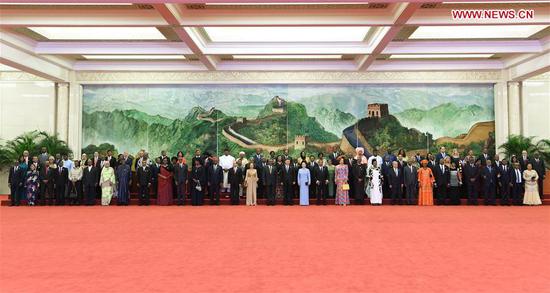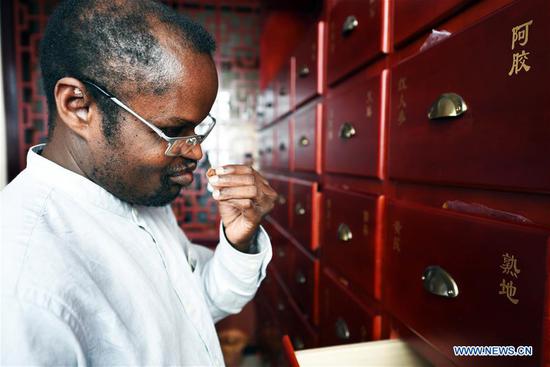
Chinese students play basketball at the University of Greenwich. (Photo provided to China Daily)
A group representing British universities has called on the government to reintroduce a discontinued visa allowing overseas students to remain in the United Kingdom for up to two years after graduation so the country does not miss out on their skills.
Britain currently attracts around 450,000 overseas students each year, with around one-third coming from the European Union. China, with around 95,000 students, is the single biggest national source.
For many years the UK has been second only to the United States in terms of overseas student recruitment, but that position is in danger of being lost to Australia.
Over the past decade, while numbers in the UK have increased by just 3 percent, the US has managed 40 percent, Australia 45 and Canada 57. Overseas graduates in the US and Canada are permitted to stay for three years, and in Australia for four years.
Britain's post-study visa was scrapped in 2012 by then home secretary Theresa May, who claimed large numbers of students were outstaying their visas to remain in the country unlawfully, which has since been discredited.
Sir Steve Smith, the chairman of Universities UK's international policy network, said reintroducing it would show Britain remained a welcoming country and give it a competitive advantage on other countries where graduates might choose to take their talents – which would become even more important after Britain's departure from the EU, Brexit, scheduled for March next year.
"We are in danger of losing our position as one of the world leaders in international education," he said.
"The market is buoyant, but the UK is flatlining in terms of international students.
"The UK as a country needs to make it clear that international students are absolutely welcome. I think now is the time, when we are 29 weeks from Brexit allegedly, to make a grand statement about welcoming in a new era where global talent can come to this country, study, work afterwards and thereby deal with the number-one issue with the economy, which is productivity, allowing those skilled workers enter the workforce."
Vivienne Stern, the director of Universities UK International, said the visa proposal was "explicitly not a route to settlement," but wanted the suggestion considered "in case the opportunity opens up" for a change of immigration policy.
Universities would like an unrestricted post-study visa allowing graduates to seek jobs without a sponsor, while having their progress monitored by their colleges.
A Home Office spokesman said it recognized the "the cultural and financial contribution" made by international students, which was why they are allowed to stay if they got a "graduate level job get an internship or apply to set up a business in the UK".
Universities UK replied that this is restrictive as students have limited time to find an employer with a specific sponsorship license and a job paying above a specific amount, or secure private sponsorship


















































